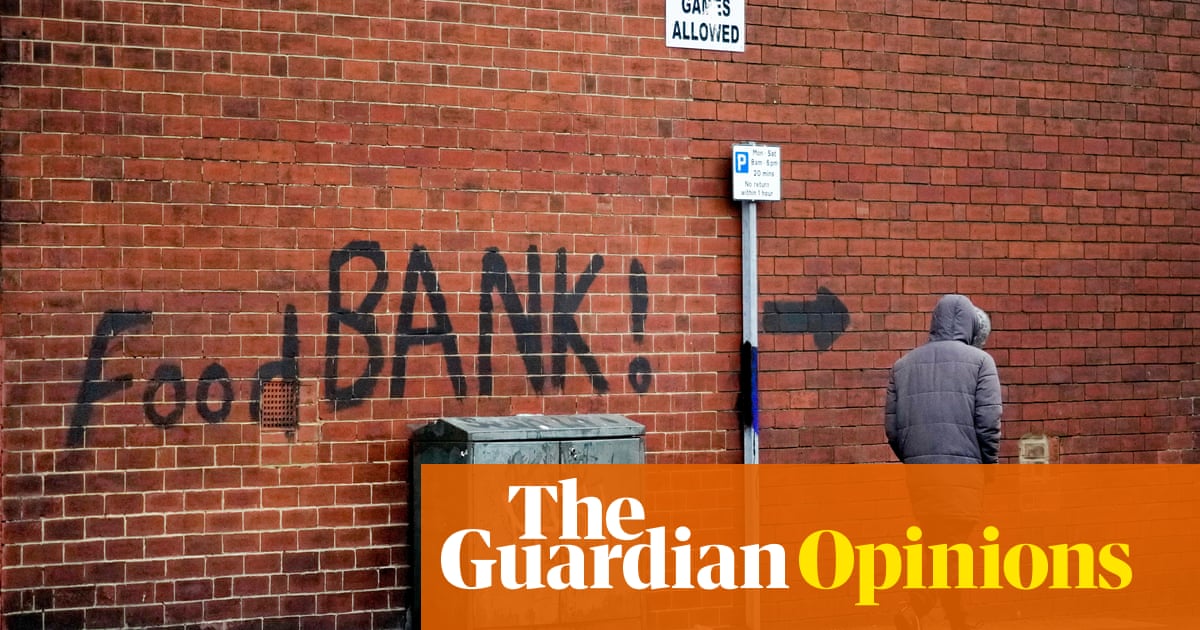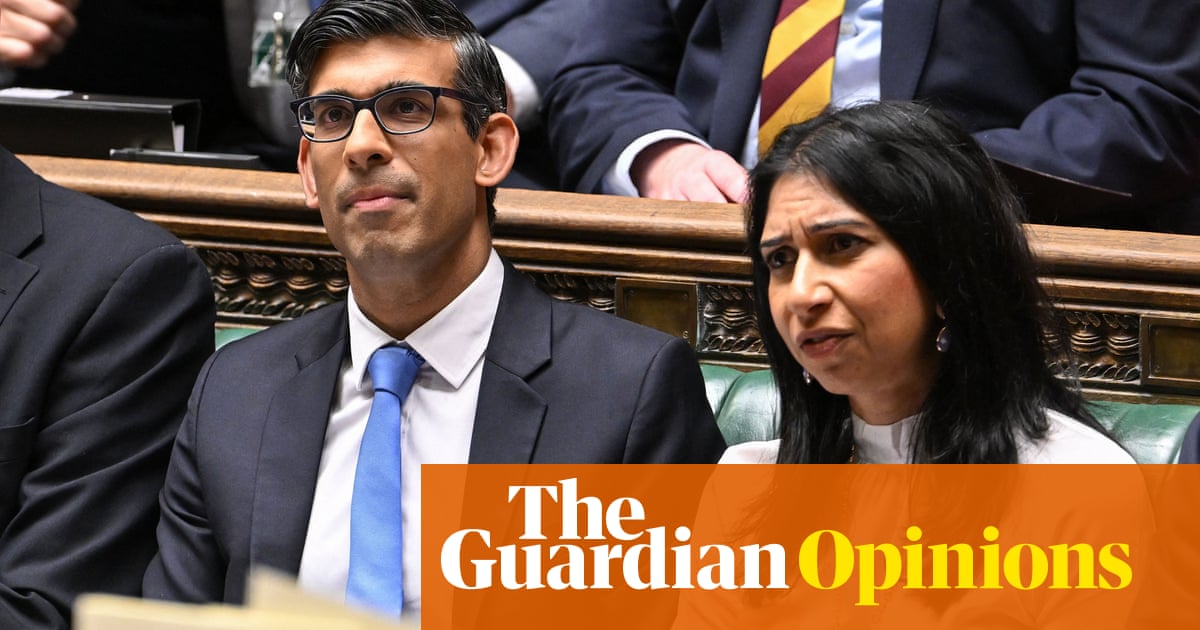
Who is to blame? In the hailstorm of bad NHS news, the government and its press outriders are trying, with some success, to shift guilt on to the NHS itself. The public is no longer clapping, they say, with only 36% of voters telling the British Social Attitudes (BSA) survey that they are satisfied with the NHS. That figure should frighten any government – unless people are persuaded to blame the NHS instead of its political masters. Look at the groundswell of rightwing commentary blaming “lazy” GPs and “overpaid bureaucrats”, with articles headlined “The public have lost faith in our NHS religion” (Daily Telegraph) and “Are we falling out of love with the NHS?” (Spectator). Will this strategy of shifting the blame work? Probably not.
The last time public approval fell so low was in 1997, when Tony Blair’s “24 hours to save the NHS” helped turf out a Tory government after years of underfunding. In the BSA survey, the three top reasons for dissatisfaction given were long waits, NHS staff shortages and inadequate government funding – not the treatment itself.
No miracle can save the Tories from facing the next election with the NHS in a crisis which they have created: waiting lists and staff vacancies will still be rising. Anita Charlesworth, research director at the Health Foundation, warns that a million more health and care staff will be needed when this decade of ageing reaches its peak. Trawling the world for staff can’t fill the void caused when the Tories’ 2010 budget axed training places for clinicians who would now be in service.
On Tuesday the Lords will again vote on former health secretary Jeremy Hunt’s amendment demanding regular estimates of NHS staffing needs for the next five, 10 and 20 years. Former Tory health minister Julia Cumberlege, championing the amendment in the Lords, tells me that saving the £6.2bn a year wasted on agency staff would pay for the extra trainees. You can see why the Treasury blocks any revelation that a million more NHS staff will be needed. The present struggle is to retain staff whose pay was cut by an average of £850 last year.
The Tories may be comforted by 39% of the survey sample saying the NHS wastes money and 25% saying the NHS “must live within its means”. Yet there is rock-solid support for its founding principles – free for everyone (94%) and paid from taxes (86%). Few on the Tory benches harbour Hayekian hopes of dislodging Aneurin Bevan’s socialist system: they know it would be political suicide, and most know that private insurance dreams are unworkable nonsense.
The political algorithm is simple: fund the NHS well and satisfaction rises. Though funding is nominally back to historical growth, inflation saps it, with no chance of repairing a decade of its lowest funding growth ever, says Charlesworth. Ministers mock the “magic money tree”, but they offer their own “magic efficiency tree”, she says, as they double impossible “efficiency savings” to 2.2% which the NHS must squeeze out this year.
Ministers can blame Covid, but the NHS was already plagued with a 4.4m waiting list. There are fewer doctors, nurses, beds and intensive care places than in comparable countries. Their best hope is to blame those who are struggling to provide underfunded services, by putting themselves “on the side of consumers” against NHS professionals. Of course NHS staff aren’t all saints, and there are obstructive professional demarcations, but unpopular politicians attack respected public servants at their peril.
The NHS will never lack disasters, or even the sort of heart-rending callous treatment revealed in the Ockenden report, on deaths caused by poor maternity care in Shrewsbury and Telford, which was valiantly exposed by determined victims. “Never again” gets repeated every time, but Alastair McLellan, editor of Health Service Journal (HSJ), says that for all the “lessons learned” he doubts there will be a time when disasters never happen. Each has its own local causes – on this occasion, midwifery dogmatism on “natural” birth, arrogant doctors and managers who engaged in obfuscation. But as health secretary Sajid Javid vows to “go after” those responsible, he should note the report’s emphasis on lack of funds and staff.
Avoidable deaths are embedded in Javid’s own regular statistics, with funding at their root: when 6.1m patients languish on English lists, people die waiting. The HSJ tracks collapsing ambulance services, with 3,000 people suffering “severe harm” in February alone because of delays in reaching those with strokes and heart attacks. Average response times stand at a shocking 78 minutes, due to hour-plus handover times at hospital entrances. McLellan says the cause is “lack of social care filling the beds, preventing admissions, delaying ambulance handovers”. He expects coroner’s courts soon to record large numbers of deaths due to late ambulances.
Last week the government ended Covid restrictions and free tests in England, though infections have hit their highest ever level, and the Office for National Statistics says that 1.5m people are reporting long Covid, which will have unknown consequences for the NHS. The Guardian has revealed how children’s mental services have been overwhelmed, a situation worsened by Covid. But for all the NHS’s troubles, hold on to this: in the national patient survey in late 2021, most people report that they had good treatment, with 75% approval for hospitals, 83% for GPs and 88% for cancer. That suggests Tory attempts to rubbish the NHS will fail. The public complains about access to services, and for that they blame the government.
Last week the annual “mandate” from the secretary of state to NHS England laid out a deranged wishlist of 13 “objectives”, all of equal “priority”: 50m extra GP appointments each year, more levelling up, no debts and 40 new hospitals. Objective number 12 is “The NHS will continue to support its workforce” (but not with pay). This sets out the NHS as it should be, as it would be on 2010 funding rates. As it is, it sets up the NHS to fail to meet impossible goals.
Polly Toynbee is a Guardian columnist












